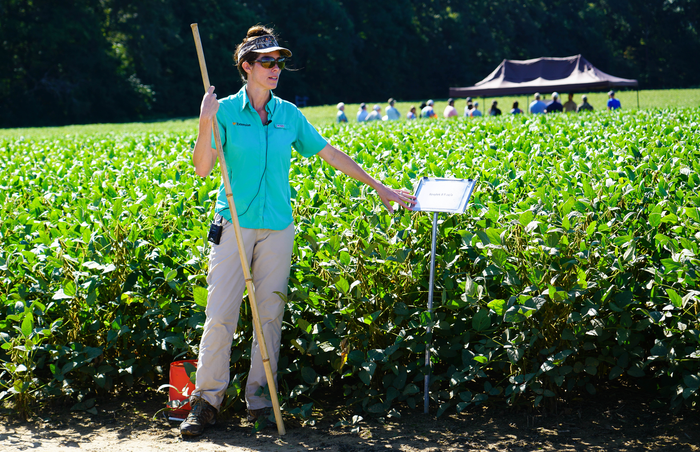Oct 1, 2021Grant focused on integrated pest management set in Tennessee
“It’s pest management the right way,” said Heather Kelly, plant pathologist at the University of Tennessee Institute of Agriculture, “With integrated pest management, we are managing pests with more than one tool, only when you need to and as sustainably as possible.”
Kelly is the lead investigator for a new $225,000 grant from the USDA National Institute of Food and Agriculture. She and nine other specialists from University of Tennessee Institute of Agriculture (UTIA ) will spend the next three years researching integrated pest management, or IPM, and showing community members and producers how to effectively control pests.
More than half (58 percent) of the $225,000 grant will be used for implementation in agronomic crops, with 18% to be split evenly for implementation in specialty crops and pollinator health. The remaining 24% of the grant will be used to educate pesticide applicators and community stakeholders, such as school and housing administrators on IPM.
Some of the programs include the following:
- Developing online resources
- Training agricultural county agents, farmers, consultants, beekeepers and other stakeholders
- Monitoring and managing invasive and pesticide-resistant pests
- Demonstrating management strategies and their effects on crop sustainability
- Educating private and commercial pesticide applicators
- Training IPM decision makers in public or low-income housing facilities and in schools
“Our long term goal is to continue to provide real life solutions, specifically to provide programs that enable people to make effective, economically sustainable and environmentally sound decisions based in IPM,” Kelly said.
The grant is part of an ongoing effort by USDA NIFA. The agency recently awarded 73 Crop Protection and Pest Management Program (CPPM) grants. The Tennessee award is among the 53 Extension Implementation awards designed to address high-priority issues related to pests and their management using IPM approaches at the state, regional and national levels.
UT Institute of Agriculture investigators include plant pathologists Heather Kelly and Zachariah Hansen, entomologists Scott Stewart and Karen Vail, apiculturist Jennifer Tsuruda, and pesticide safety education coordinator Darrell Hensley, all from the Department of Entomology and Plant Pathology. Also working on the project are agronomists Tyson Raper and Angela McClure and weed scientist Larry Steckel from the Department of Plant Sciences and soil scientist Nutifafa Adotey from the Department of Biosystems Engineering and Soil Science.
Through its land-grant mission of research, teaching and extension, the University of Tennessee Institute of Agriculture touches lives and provides Real. Life. Solutions. utia.tennessee.edu















